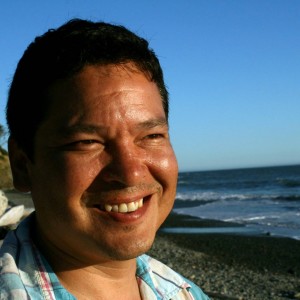Last year, I married my partner of 17 years.
The most powerful part of the ceremony was when our minister declared “by the powers vested in me, and the good people of the state of Washington, I now pronounce you married.” It was incredible to realize that after so many years together, our relationship was now legally recognized and sanctioned by the state we call home. In that moment, I felt the justice of it all for the very first time. It also reaffirmed my belief that everyone deserves equal rights and protection under the law, regardless of age, gender, race, religion, sex, or sexual identity.
Unlike my state, however, my tribe does not recognize marriages between same-sex couples. Despite recent legal strides made at the state and federal levels, only eight Native American tribes in the United States allow same-sex couples to marry. This is just one of many inequalities that LGBTQ, or Two Spirit, Natives face on tribal lands.
Fortunately, there are efforts being made to address and educate native communities throughout the country about the unique legal challenges faced by Two Spirit people.
Se-ah-dom Edmo (Shoshone-Bannock, Nez Perce, and Yakama), the Coordinator of Indigenous Ways of Knowing (IWOK) program at Lewis & Clark Graduate School, has spent much of her time creating the Tribal Equity Toolkit, which Pride Foundation has been proud to support. The Tribal Equity Toolkit: Tribal Resolutions and Codes to Support Two Spirit and LGBT Justice in Indian Country is a first-of-its-kind collection of legal resources.
It gives tribal legislators a brief overview of legal issues that affect Two Spirit individuals, and is designed to help tribal government officials identify discrimination in tribal codes and regulations, and it offers draft language to strengthen and promote LGBTQ equality.
The Tribal Equity Toolkit also identifies areas in which existing laws may discriminate against LGBT people, and provides sample resolution and code language that tribal lawmakers can utilize in an effort to maximize LGBTQ equality within their communities. Commentary to the draft language is also provided, addressing some of the policy issues that tribal legislators should consider when developing or revising tribal laws to promote LGBTQ justice.
In an attempt to get this valuable community resource into the hands of more tribal leaders, in late 2013, IWOK hosted a Two Spirit Justice Summit and Tribal Equity Toolkit Release Party in Portland, OR. I was fortunate to represent Pride Foundation at this gathering and the summit was a huge success. Respected Two Spirit and allied leaders from various native communities came together to strategize about the challenges that Two Spirit people face on and off the reservation.
Volunteers who interviewed tribal leaders in various Nations throughout the Northwest shared what they learned about issues that Two Spirit and LGBTQ people face. The results were illuminating. Among the lessons learned: While younger tribal leaders were generally receptive to interview requests and happy to engage in this important dialogue, a number of elders declined to participate on the basis that Two Spirit rights was not something that needed to be discussed.
While many of the leaders acknowledged knowing tribal members who were Two Spirit, a majority of those interviewed shared they had not previously given much thought to Two Spirit people or tried to understand their concerns in depth. “It just wasn’t talked about,” was a refrain heard frequently.
After the summit ended, we celebrated the release of the updated Tribal Equity Toolkit, which is now available for free here:
With a new year upon us, my hopes of equality are in sight as I see all the changes and successes that have happened in 2013. I envision a day when everyone, native and non-native, nationally and locally, is treated with equality and respect, honored, and recognized for who they are. As a native person, it is so great to see those striving to create the equality and social change that we all deserve as LGBTQ and Two Spirit people—not only in the states, but in our sovereign nations as well.
I am honored to be a part of this effort.
Farand Gunnels is Pride Foundation’s Regional Development Organizer in Washington. Email Farand.
